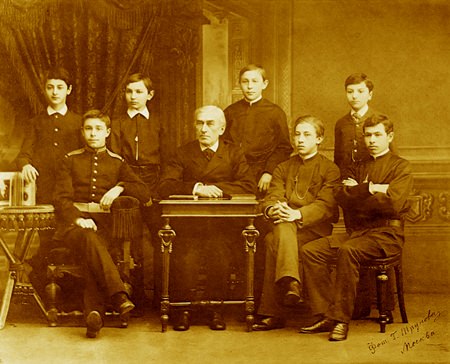
A good many years ago when I was living back in The Cold Country, I decided to buy a new car radio. I chose a shiny chrome Motorola and although it looked a bit incongruous in the shabby car, it brought me a daily supply of exciting classical music. The radio had four or five clunky levers that you had to press to change stations. No more were needed, because back then only a handful of BBC stations were available.
At the time, my teaching job required a twice-daily drive through London’s snarling traffic and the new Motorola helped me to avoid early insanity. It was always tuned to Radio Three, which was (and still is) the BBC’s classical music station. The presentation style was reassuringly old-fashioned and they broadcast plenty of modern music as well as the classics. The chrome Motorola turned out to be worth every penny.
Recently, a friend told me that he avoided garlic for years because he thought he wouldn’t like the taste. As a child, I had the same irrational attitude towards baked beans. I was also convinced that I wouldn’t like the music of Scriabin and assumed that it was opaque and hopelessly difficult to understand. The composer’s name didn’t help either, because the letters “scr” sounded too close to unpleasant negative words like scrawny, scratch, scrap, screech, and scrounge. For a long time, I avoided Scriabin like the plague.
That is, until a Sunday afternoon one November when I was driving through an uninspiring tract of South London. It was one of those damp, dismal winter days for which Britain is justifiably renowned and the leaden skies created a sense of gloom and despondency. Switching on the Motorola, the car was suddenly filled with musical sunlight: warm and sensuous harmonies, melodic lines of ravishing beauty and a strange but comforting sense of timelessness.
I parked the car and listened to the rest of the work, wondering who could have written such sublime music. Of course, you’ve guessed. The music turned out to be by Scriabin. It was The Poem of Ecstasy – also known as the Fourth Symphony. The next day I went to the local record shop and bought all the Scriabin records they could offer.
Scriabin – like Rachmaninov – studied with the legendary if somewhat temperamental and autocratic teacher, Nikolai Zverev. The Poem of Ecstasy is in a single movement, written between 1905 and 1908 when the composer was actively involved with the Theosophical Society. This you may recall was co-founded in 1875 by the controversial, eccentric (and possibly deranged) Madame Blavatsky. Her admirers considered her an enlightened psychic while critics dismissed her as a shameless fraud. Her claims to have visited various exotic countries were largely fictitious.
Scriabin also had his share of eccentricity and evidently thought he could fly. He once attempted to walk on the waters of Lake Geneva but was unsuccessful. Even so, Leo Tolstoy described Scriabin’s music as “a sincere expression of genius”.
Like Debussy, Scriabin often used the whole-tone scale, creating a kind of harmonic ambiguity so that you don’t get a particular sense of key. By the standards of the time, there are sometimes quite dissonant moments but also passages of rich flowing harmony. It’s been suggested that Scriabin included musical depictions of explicit sex in this work, but I’ll let you decide that for yourself. The final section of the work glows with triumph.
Ralph Vaughan Williams (1872-1958): Fantasia on a Theme by Thomas Tallis. BBC National Orchestra of Wales cond. Tadaaki Otaka (Duration: 16:50; Video: 360p)
I had to thank the Motorola for bringing this wonderful piece of music into my life. I first heard it long ago – early one morning in September, “just as the sun was rising”, as the song goes. The music, my mood and the time of day all matched and once again I was compelled to stop and listen. Often known simply as The Tallis Fantasia, it was first performed at the Gloucester Three Choirs Festival in 1910. The work takes its name from the English composer Thomas Tallis, who was one of Europe’s leading writers of sacred choral music during the sixteenth century.
This music just sounds so English. It really seems to speak of gentle, rolling hills and summer meadows. Listen to the magical effect of the opening chords, and then the feeling of suspense as the Tallis theme is played pizzicato on the lower strings. Masterfully, Vaughan Williams develops this noble melody and weaves it into something completely new.
The depth of feeling and the sense of Englishness in this music are extraordinary. Ironically though, this fine performance is given by a Welsh orchestra under a Japanese conductor.





